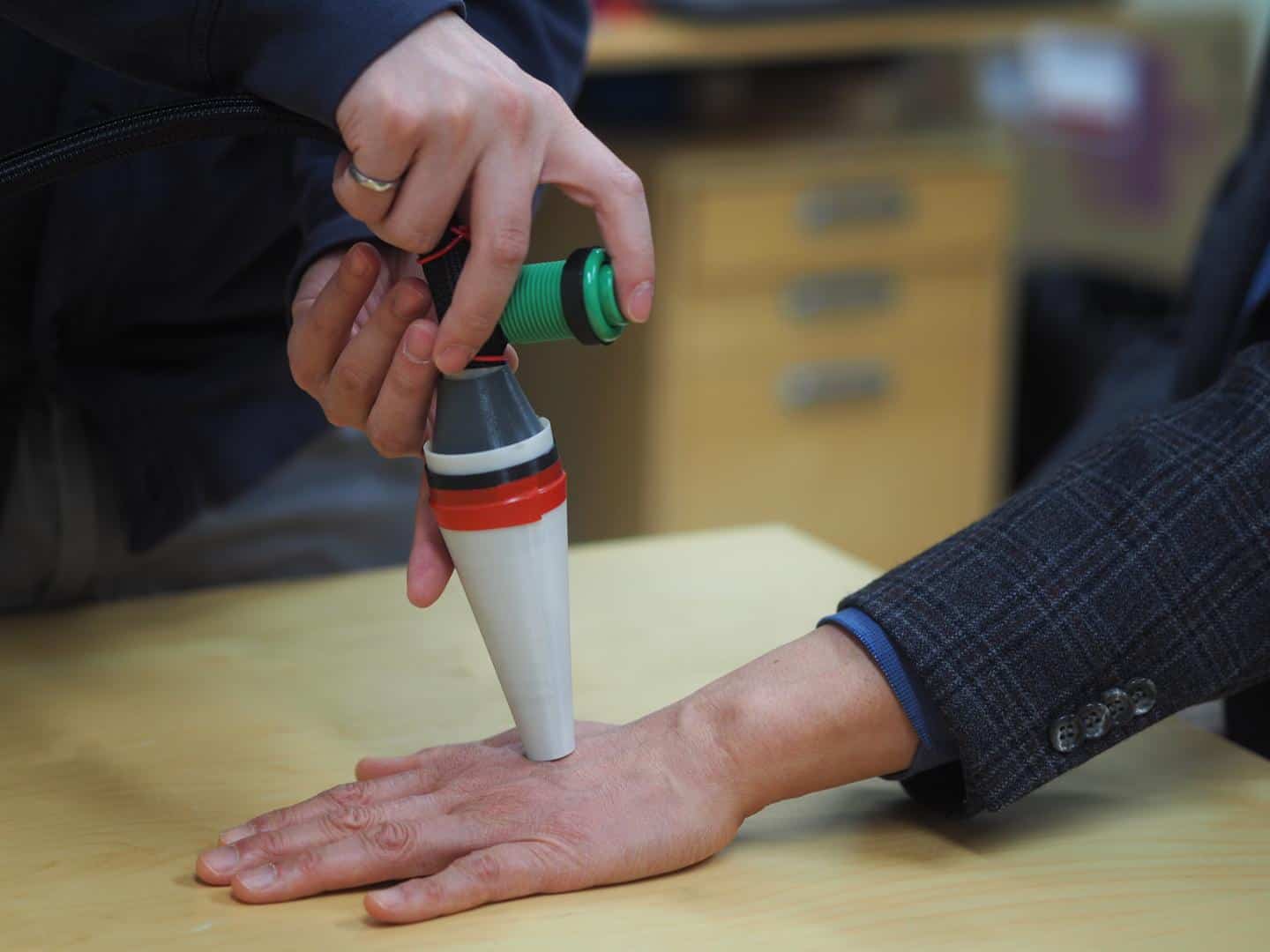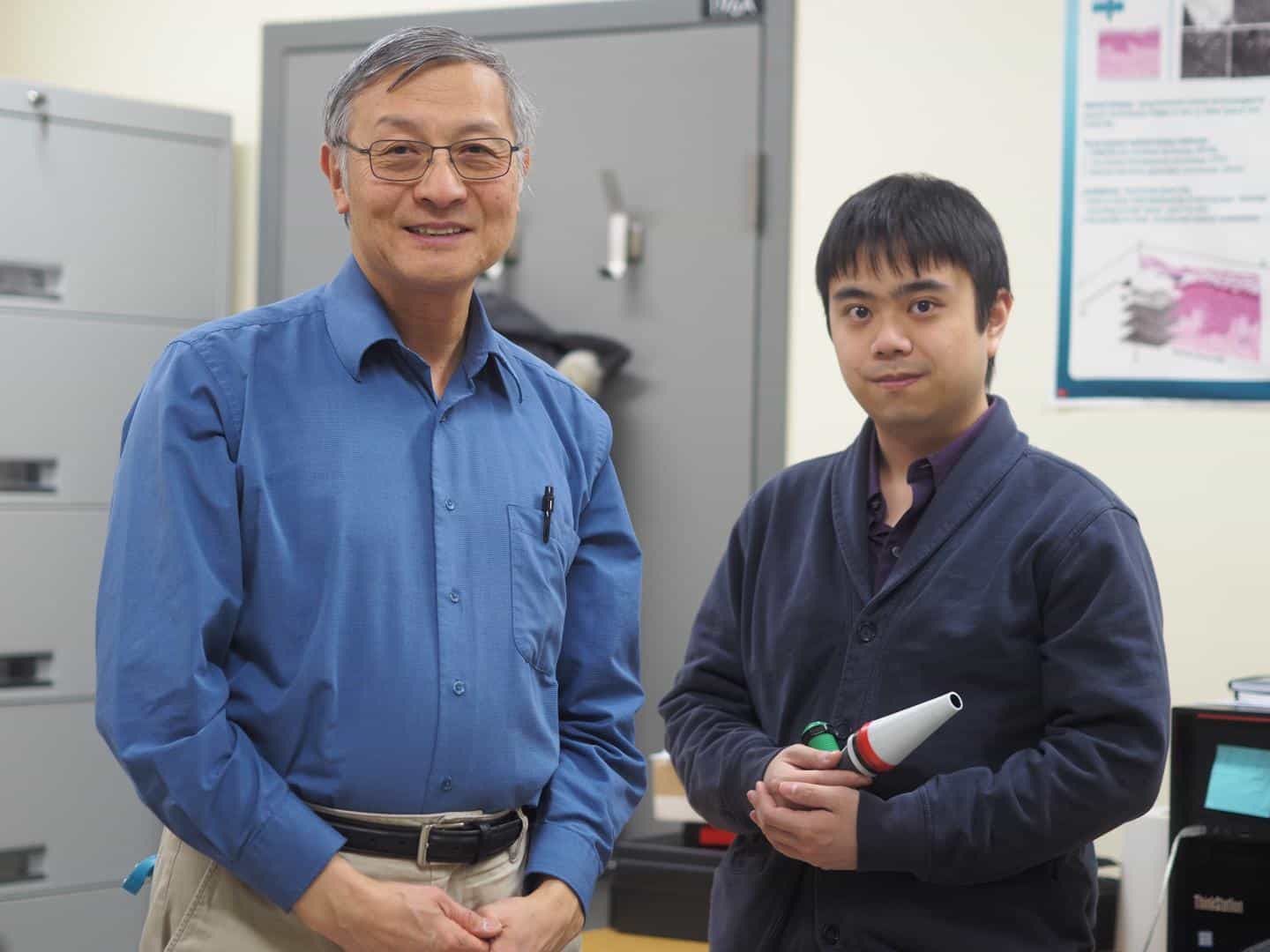Canadian researchers have developed a laser probe that uses changes in light patterns to detect melanoma, the deadliest form of skin cancer.

The device works on the principle that light waves change as they pass through objects. Cancerous cells have a different physical profile to healthy cells, and the researchers designed a system that can detect these patterns instantly. By determining the optical polarisation of different skin lesions, the team was able to distinguish cancerous from non-cancerous tissues.
"With skin cancer, there's a saying that if you can spot it you can stop it - and that's exactly what this probe is designed to do," said researcher Daniel Louie, a PhD student who constructed the device as part of his studies in biomedical engineering at the University of British Columbia (UBC).
"Because cancer cells are denser, larger and more irregularly shaped than normal cells, they cause distinctive scattering in the light waves as they pass through. We were able to invent a novel way to interpret these patterns instantaneously."
While imaging tools for cancer are nothing new, the UBC team claims that its device does not require expensive cameras or lenses. As a result, it should cost just a few hundred dollars.
"We set out to develop this technology using inexpensive materials, so the final device would be easy to manufacture and widely used as a preliminary screening tool for skin cancer,” said Louie.

The researchers claim the laser probe can provide an easily understandable numerical result, similar in principle to a thermometer. Despite its low cost and usability, the UBC team envisions the device as a clinical tool for melanoma diagnosis rather than a consumer product.
"A cancer screening tool should be administered by a trained health care professional who would know where the patient needs to go afterwards," said Tim Lee, an associate professor of skin science and dermatology at UBC who supervised the study, which is published in the Journal of Biomedical Optics.
"We have so few dermatologists relative to the growing number of skin cancers that are occurring," Lee continued. "If we can develop a device that can be integrated easily into other parts of the health care system, we can simplify the screening process and potentially save hundreds if not thousands of lives."




Poll: Should the UK’s railways be renationalised?
If only the track is nationalised then it is an emasculated one with limited function and improvements will be focused on existing commuter and large...